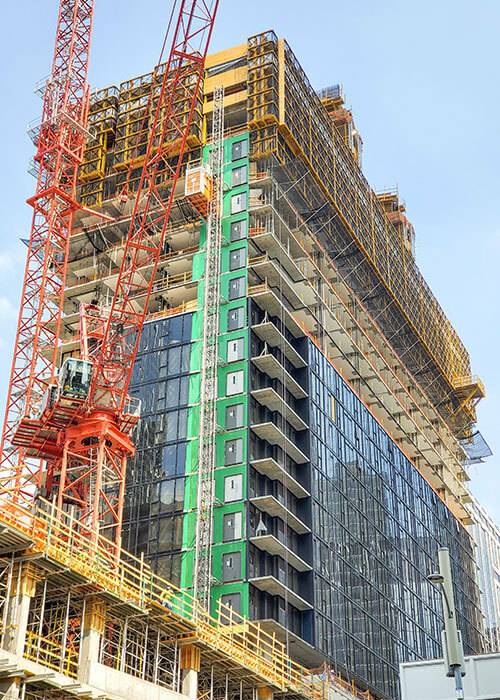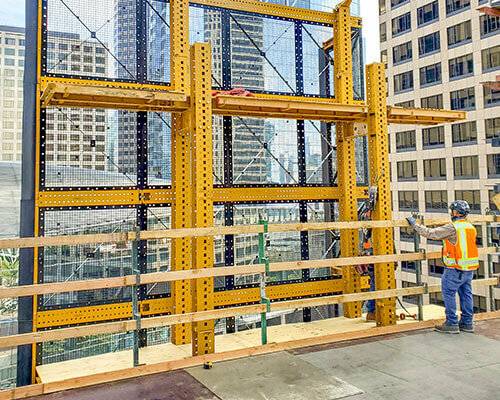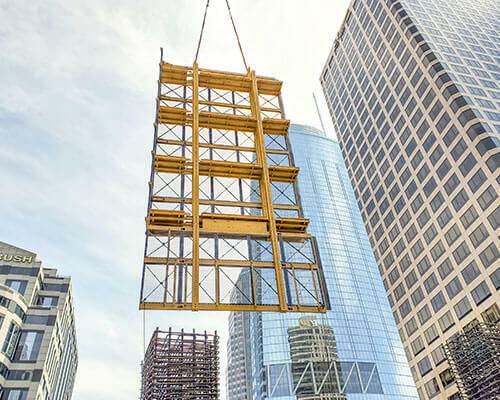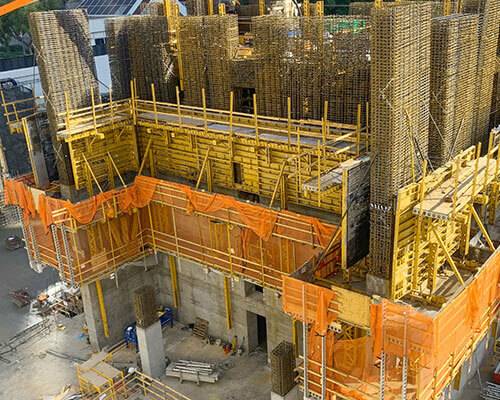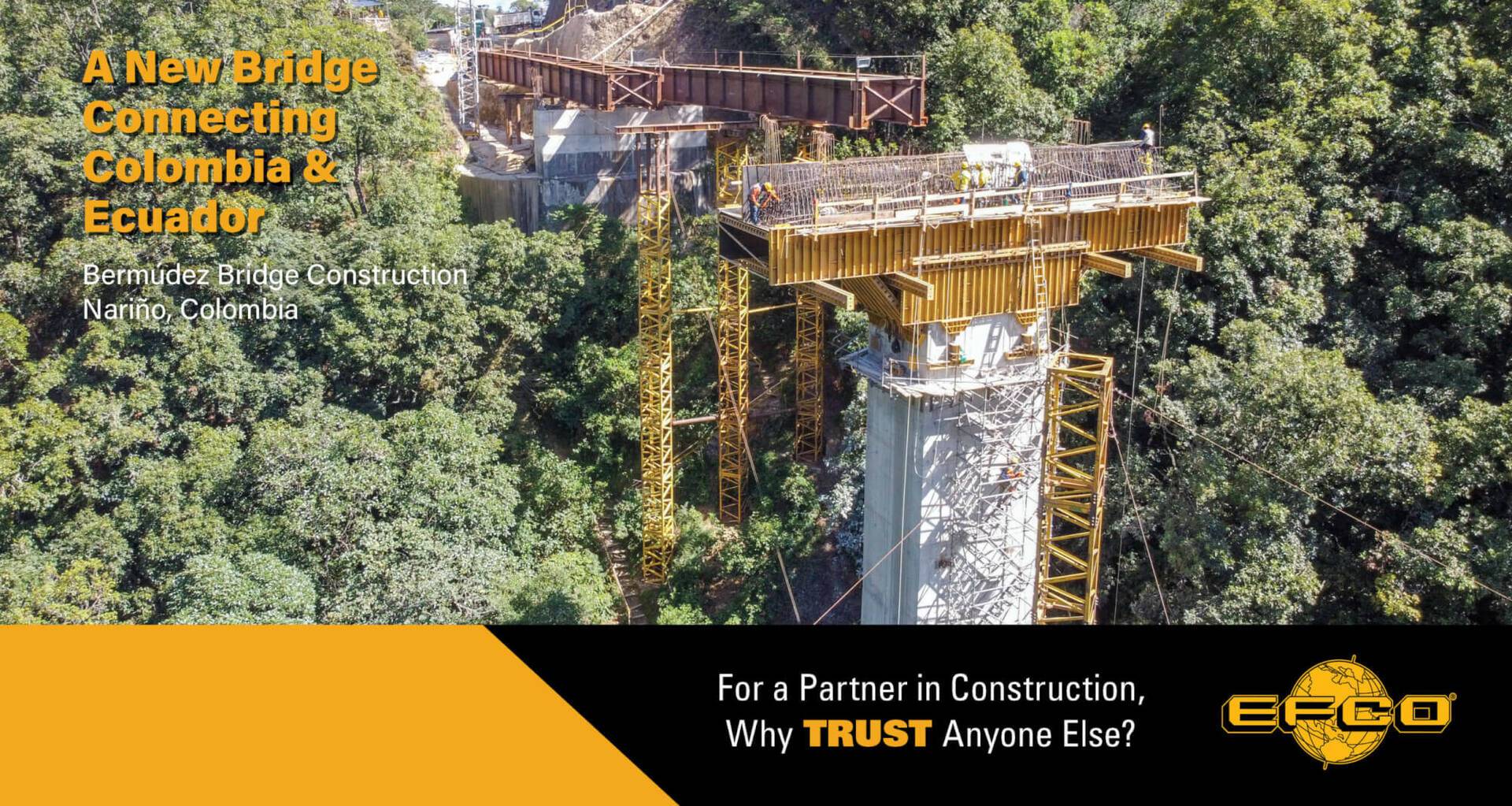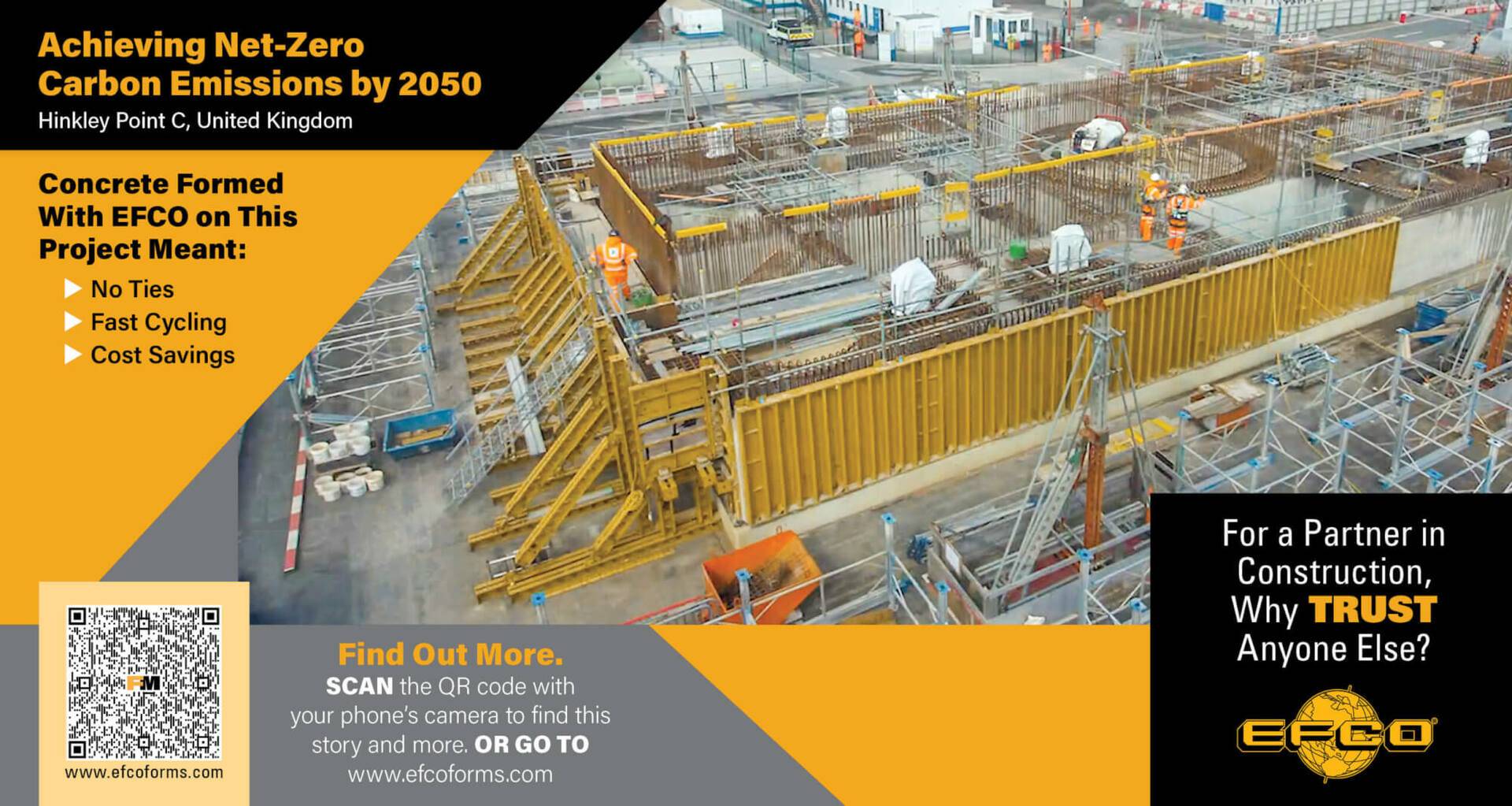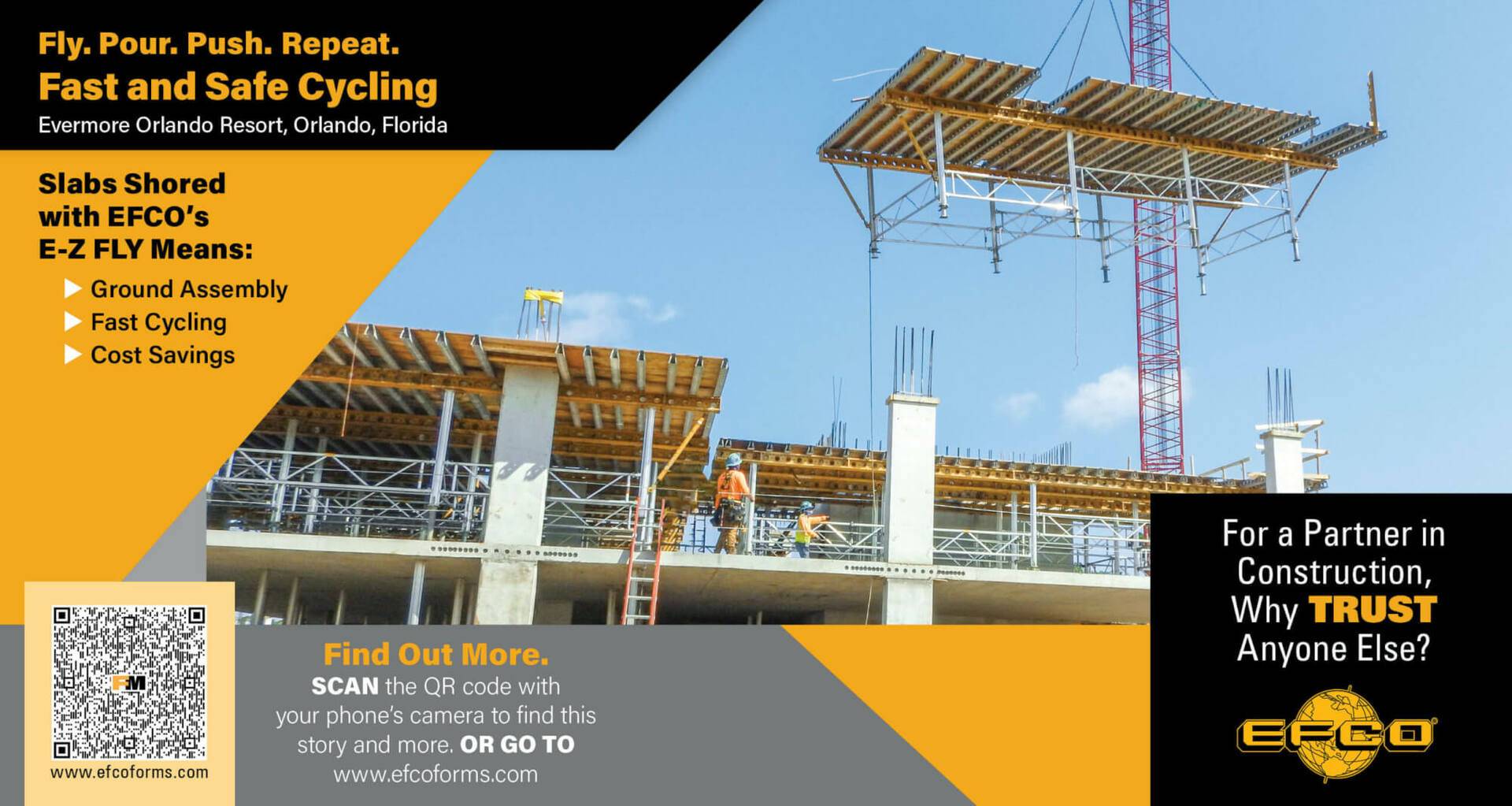Read Time: 3.5 minutes
Skyscrapers and High-rise Buildings
Skyscrapers and high-rise buildings often become prominent features of any modern city, adding to their culture’s richness. They are astonishing for their scale, design, and the work it takes to build them. Tall buildings arise from numerous contingencies and collaborations among architects, CEOs, steelworkers, engineers, construction workers, bankers, and financers.
The Mechanics of High-rise Structures
The art of building high is about design, material efficiency, and construction speed. This means seamless engineering coordination to achieve optimal cost and an iconic, elegant building.
-Kamran Moazami, General Director of Property and Buildings
New High-rise
960 West 7th Street
The developers’ goals for the new high-rise construction project at 960 West 7th Street, also known as “Beaudry,” in downtown Los Angeles, California, were to create a beautiful piece of architecture and reduce construction costs and embodied carbon.
Reducing Embodied Carbon
One of the ways Webcor Concrete, the construction contractor for this high-rise building project headquartered in San Francisco, California, reduced embodied carbon is in the production of their concrete. Cement production, the key ingredient in concrete, accounts for around 7% of global CO2 emissions. The Global Cement and Concrete Association (GCCA) has published a detailed roadmap that sets the path the industry will follow to fully decarbonize by 2050, a target aligned with the Paris Agreement to limit global warming to 1.5°C.
What is Embodied Carbon?
Embodied carbon refers to the carbon dioxide (CO2) or greenhouse gas (GHG) emissions associated with the manufacture and use of a product or service. This gas contributes to global warming, which can lead to flooding, fires, and hurricanes, among other environmental problems.
Specialized Concrete Mix for a Clean Energy Solution
Webcor worked with National Concrete to design a specialized concrete mix for this project. This formula reduces the amount of cement used to construct the Beaudry high-rise building, lowering the carbon emission. This new mix included Orca aggregates imported from the Pacific Northwest by barge down the West Coast and proved to have a minor carbon impact in comparison to the traditional concrete mixes. This one modification led to a 24% reduction of the project’s total embodied carbon footprint.
Leader in the Construction of Tall Buildings
Webcor, an innovative construction contractor partnered with EFCO to provide the most efficient formwork and construction support systems for this 57-story tower. The structure recently topped-out at more than 600 feet, making it one of the tallest residential buildings in Los Angeles. Once complete, Beaudry will be home to 785 residential units with studio, one-, two-, and three-bedroom layouts, parking for 831 vehicles, and street-level retail spaces.
Fall Protection System
EFCO POWER SHIELD 3.0
One of EFCO’s newest products is EFCO POWER SHIELD® 3.0. It is a multi-purpose leading edge fall protection system that surrounds the perimeter of a building while under construction. This innovative edge protection system was designed with off-site pre-build and transportation in mind. Pre-built standard units, up to 12 ft wide, are transported to the job site and fold out to approximately double their inbound width, complete with end closures. EFCO POWER SHIELD covers more width in a single pick than fixed width competitive systems and requires less work on the ground to extend than other expanding systems.
Complete Edge Protection System
EFCO POWER SHIELD 3.0
EFCO’s pre-built POWER SHIELD® 3.0 edge protection system comes complete and ready to install, minimizing costly lane closures and increasing productivity. EFCO POWER SHIELD 3.0 has the capability to fold out to a maximum of two times the provided width, including the closed-end panels. POWER SHIELD masts have a built-in series of openings in the flange allowing the system to lock off in 3” vertical increments, providing ideal alignment between the system and the structure. This system minimizes the impact on crane resources by installing faster than any competing products.
Sheeting Options for Edge Protection
The POWER SHIELD® 3.0 screen panels have 1” x 1” square mesh openings, allowing airflow and minimizing wind loading on the permanent structure. The modular screen panels include a series of attachment points that allow the installation of various facing materials. A lightweight, UV-resistant, translucent skin is available for leasing to cover the structure as desired for enhanced debris protection or environmental control. The modular screen panels may also be re-arranged to face outwards, allowing attachment of signage if desired.
I do not know of another edge protection manufacturer who offers 20 ft wide screens that come fully fabricated to the job site and require close to zero work onsite.
-Markus Klooth, P.E., Webcor Concrete Superintendent
Raising Formwork Vertically Without a Crane
Self-Climbing Formwork Systems
Webcor also utilized EFCO’s POWER TOWER 100 (PT-100) and POWER TOWER 50 (PT-50) self-climbing formwork systems to shape the elevator core, achieving a 3-day cycle on a 16,000 square-foot deck. Webcor chose to use the PT-100 system on the inside of the core to carry the interior formwork and concrete pump, and the PT-50 system on the outside of the core that carried the exterior formwork.
EFCO helped us achieve a 3-day cycle on a 16,000 square-foot deck with their PT-100 and PT-50 self-climbing systems.
-Markus Klooth, P.E., Webcor Concrete Superintendent
Self-Climbing Formwork Systems working together
POWER TOWER 50 (PT-50) and POWER TOWER 100 (PT-100)
The combination of these two systems allowed Webcor to avoid the need for overhead beams spanning over the core walls. EFCO’s self-climbing formwork systems meet the increasing demand for independent solutions that can raise formwork vertically without relying on cranes for repetitious vertical lifts.
EFCO Los Angeles
The Formwork and Shoring Specialists for This Project
Los Angeles, California
14562 San Bernardino Avenue
Fontana, CA 92335
Phone: (714) 694-0244
Sources:
CarbonCure Technologies Inc. (22September2022). What is Embodied Carbon? Retrieved 06 July 2022, from https://www.carboncure.com/concrete-corner/what-is-embodied-carbon/#:~:text=Put%20simply%2C%20embodied%20carbon%20is,the%20waste%2C%20and%20recycling%20it.
WSP. World-Renowned High-Rise Engineers. Retrieved 06 July 2022, from https://www.wsp.com/en-CN/sectors/high-rise
BuilderSpace. The Skyscraper Construction Process Explained. Retrieved06 July 2022 from https://www.builderspace.com/the-skyscraper-consruction-process-explained






